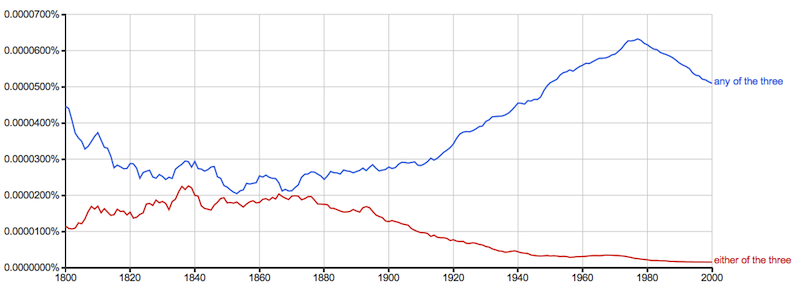You've asked two questions here; one in your title:
Can “either” be used for more than two items?
and one in the body of your question:
Is this use of “either” correct in the above paragraph?
Catija has (correctly, in my opinion) given an answer to the second question. I'd like to answer the first: It depends.
As one grammar blogger wrote:
When used as a conjunction, “either” implies one of two or more elements. However, if it’s an adjective (meaning “one and/or the other”) or a pronoun (meaning “the one or the other”), then “either” implies one of two only.
The Free Dictionary has a usage note:
The traditional rule holds that either should be used only to refer to one of two items, and that any is required when more than two items are involved: Any (not either) of the three opposition candidates still in the race would make a better president than the incumbent. But reputable writers have often violated this rule, and in any case it applies only to the use of either as a pronoun or an adjective.
As for those aforementioned "violations," you can find several of them by going to Google Books and searching for "any of the three". When I did that, I noticed that several of the hits were from the 19th century, which made me wonder if either of the three was not considered the grammatical misdemeanor a century or so ago that it is today, a theory that seems to be supported by this Ngram:


